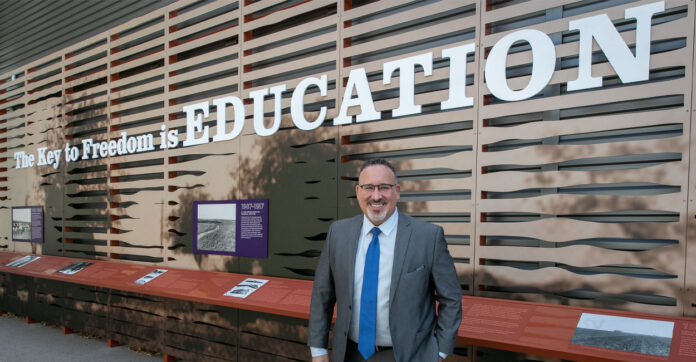From Monday, May 6th, to Friday, May 10th, Teacher Appreciation Week is celebrated, a time to shine a light on their tireless efforts that extend beyond the classroom. Teachers aren’t just educators; they’re the ones who unearth talent, nurture skills, and guide career paths, all while fostering critical thinking in students.
Teacher’s Day in the United States has a humble beginning, starting as an informal celebration in 1985. It wasn’t until 1995 that Arkansas teacher Mattye Whyte Woodridge campaigned for its official recognition. Thanks to her persistence, Congress declared May 7th as Teacher’s Day that same year.
While the United States has historically been a frontrunner in global education, recent years have seen a decline in performance, at least according to international benchmarks like the PISA tests, where many Asian and European nations outpace us.
But the mental health of our students is even more concerning, and many teachers struggle with difficult conditions every day, all while earning low salaries.
Disparities in resources, facilities, and expectations that penalize poor districts cause a constant exodus of students and teachers. This situation makes the need for an educational reform that responds to the needs of the 21st century even more urgent.
Violence at home and in the streets, along with unruly students and a general feeling of insecurity inside classrooms, all add to the challenges faced by under-resourced schools.
Federal, state, and local administrations are making efforts to overcome these long-standing and other accumulating challenges. However, no effort should be spared to offer children schools with safe, high-quality, and academically excellent conditions.
This week, Impacto honors teachers who are transforming lives, from those who impact the lives of their students, mostly from minorities and in vulnerable situations, to those who lead educational reforms, such as Dr. Debora Carrera in Philadelphia, and Dr. Miguel Cardona at the national level.
Both of Puerto Rican origin, they are examples of personal and professional overcoming, and of how the innovative vision that characterizes Hispanics can transform realities. Their commitment to education and their focus on the well-being of communities make them role models for new generations.
Their stories are living proof that, with hard work, real commitment, and creativity, the barriers of ethnicity, origin, language, or culture can be overcome to excel in such an essential field and contribute to ensuring that all students have the opportunity to reach their full potential.







